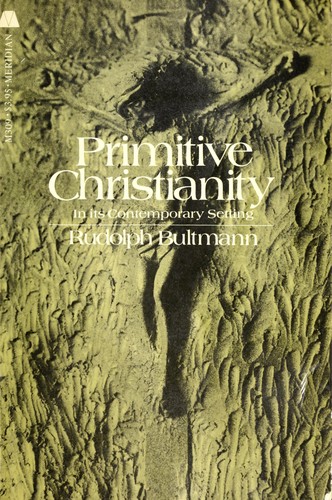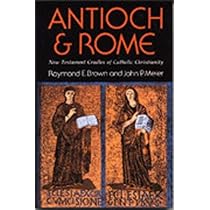This classic work on the kind of thought that went into the making of the Christian sect takes a rather mainstream somewhat-secular scholarly approach to the subject, arguing that Christian practice is a mix of Jewish practice, mystery religions, and Greek philosophy. Although a translation from German, the text reads very much like a lyrical sermon in places, which one might think would wear thin but which actually grew on me. Bultmann quotes extensively from the scriptures, and although there is a fairly robust notes section, he seems often to avoid pointing to other scholars for his assertions, which makes for something of a need to take Bultmann at his word. That he is making claims many other scholars make means this may not be as problematic as it might sound; at the same time, too much emphasis on common ideas means that one isn't necessarily given reason to be convinced of some assertions since there isn't recall to actual primary sources (let alone, secondary) for them.
Bultmann starts with Jewish (really Old Testament) ideas about creation and the afterlife, largely asserting that such ideas grew out of Canaanite and Babylonian religion. Only after Jewish society mixed with that of Persia did ideas about resurrection begin to take shape within the Jewish faith itself. This is a common assertion but one that is not without those who have claimed otherwise—one wouldn't know that there are disagreements with regard to where the teaching about the resurrection derived from reading Bultmann, however. Still, one of the most interesting points Bultmann makes is how the Jewish faith became increasingly future oriented, as its own national problems and eventual demise took shape. That future orientation would in turn, to an extent, set up early Christian teachings, even as Christianity would itself eventually take more of a focus on the present, once it became clear Christ's second coming was not in the near future, though the “future” would survive in the Christian orientation toward an afterlife.
Bultmann then explores Greek philosophy—most especially its growth out of concerns regarding the governorship of the city-state. As the city-state fell by the wayside, other views came to the fore, including Stoicism and the various mystery religions. Bultmann does a great job of showing parallels between these two sets of beliefs with Christian belief, including lack of tie to specific cultures, and openness to peoples of all classes. (Bultmann does not, however, seem at all cognizant of the belief among many scholars that many of the so-called mystery religions did not gain widespread appeal until the second century, after primitive Christianity would have forged its basic ideas; if that is the case, then such religions may have affected Christianity in the second century and later but likely had much less influence on the first decades of the faith.)
Bultmann also looks at the influence of Gnosticism on the church, drawing comparisons between the two systems, mostly looking at parallels, such as a belief in a redeemer and renunciation of concerns with the physical world. A final section looks at early Christian ideas and how all these varying influences helped to forge what became Christianity.








